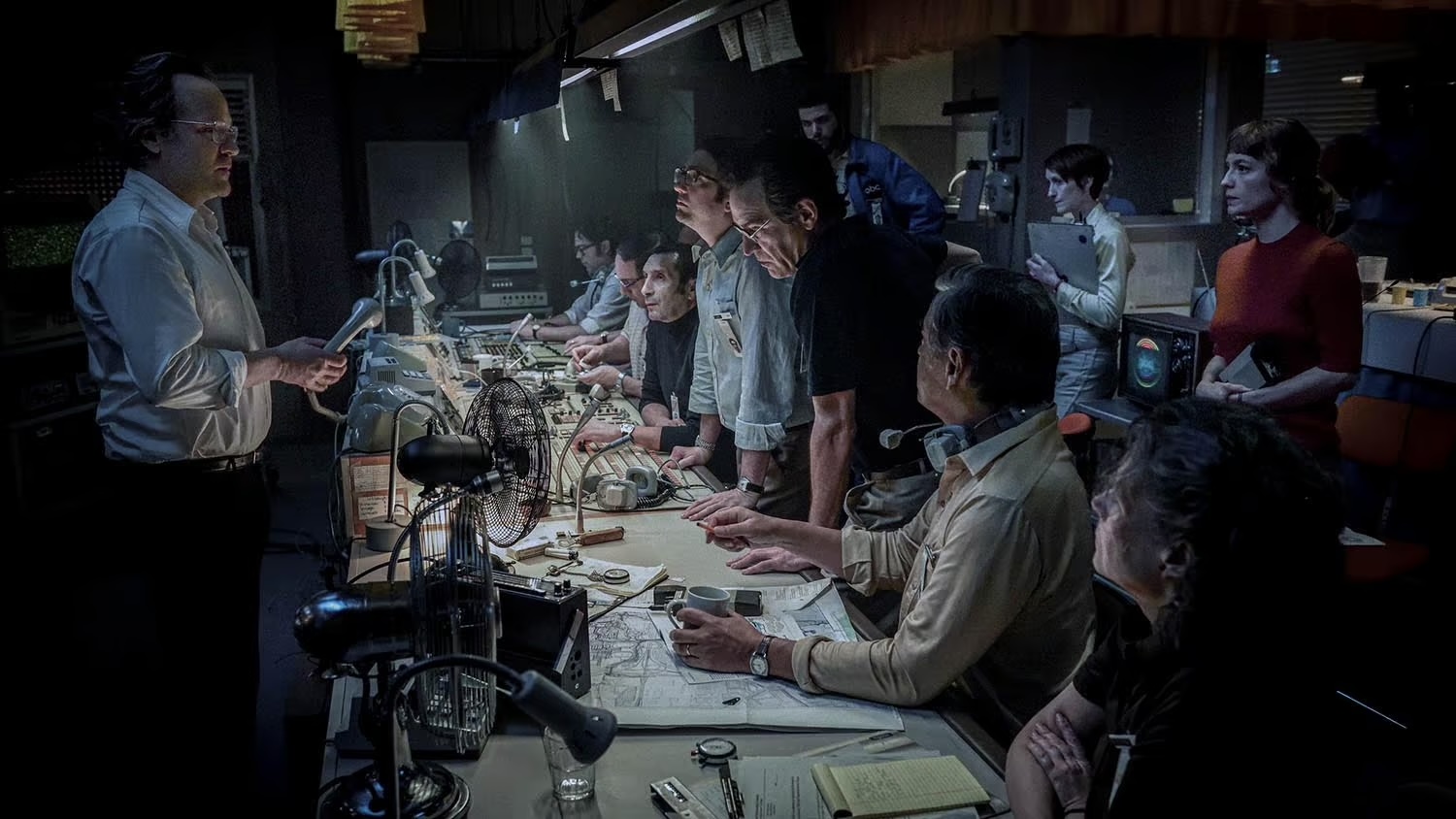At first glance, ‘September 5’ might complement Spielberg’s Munich, both films addressing the tragic hostage crisis at the 1972 Olympics. However, Tim Fehlbaum’s intense drama zeroes in on a different angle: the ethical and logistical challenges faced by journalists trying to cover an unprecedented act of terrorism as it unfolded live. Set entirely in ABC’s control room in Munich, the film follows sports producer Geoffrey Mason (John Magaro), pivoting from preparing to cover a boxing match to documenting a harrowing, real-time hostage crisis.
By restricting the film’s setting to the control room, Fehlbaum creates an intimate, high-stakes atmosphere where the ABC team—led by Mason, operations manager Marvin Bader (Ben Chaplin), and translator Marianne (Leonie Benesch)—must confront rapidly evolving questions. How much should be shown? How should they navigate the balance between newsworthiness and decency? With this narrow focus, September 5 offers a tense, almost claustrophobic look at the on-the-fly decision-making required in broadcast journalism, where the immediacy of live TV blurs ethical boundaries.
The film’s limited perspective is both its strength and its challenge. By focusing strictly on the control room experience, September 5 largely avoids delving into the deeper geopolitical context of the Israeli-Palestinian conflict. Instead, it presents the Israeli athletes as innocent victims, an approach that, while understandable, may come across as oversimplified. The film does hint at this complexity, such as when Peter Jennings (Benjamin Walker) suggests avoiding the term “terrorist,” only for Mason’s team to push forward under pressure. These fleeting moments acknowledge the ethical gray areas in news coverage, yet they quickly give way to the ticking-clock tension of television production.
Fehlbaum’s love for pre-digital news production shines through in meticulous scenes of behind-the-scenes coordination. Viewers see cables strewn across floors, improvised setups, and last-minute calls to Peter Jennings and Jim McKay as the ABC crew works to capture every detail. Their mission to provide “responsible coverage” becomes a covert operation driven by a blend of duty, adrenaline, and the unspoken thrill of being at the center of a breaking story.
The film’s core message comes through in a haunting line from a crew member who reflects, “We were waiting for something to happen because we wanted to take a picture of it.” In this sense, ‘September 5’ confronts the uneasy dynamic between news media and real-life tragedy, allowing viewers to wrestle with the ethical implications of live broadcasting without offering easy answers.
While it may bypass a broader ideological discussion, ‘September 5’ offers an absorbing exploration of the media’s role in a crisis and the unsettling choices made by those responsible for bringing such events into the public eye. Fehlbaum’s film is a taut, thought-provoking thriller that challenges viewers to consider the moral tightrope journalists walk when tragedy unfolds on screen. For those willing to engage with its focused narrative, September 5 provides a sobering look at a dark chapter in history and the people tasked with documenting it.
